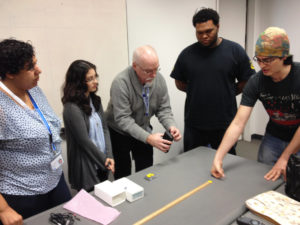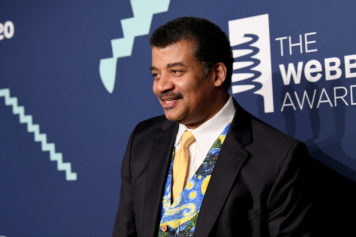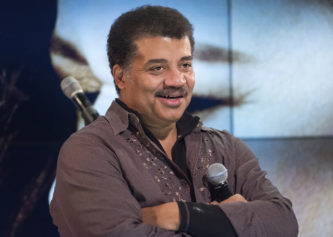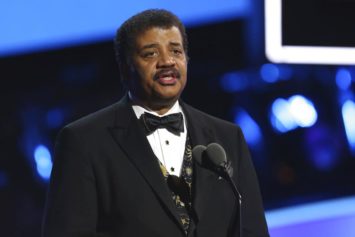Shooting for the stars is expensive.
Advanced sciences like astronomy require years of study and graduate degrees, and the soaring cost of college can be a heavy obstacle for low-income and minority students hoping to break into those fields.
A program at the City University of New York hopes to lift that burden by providing scholarships and one-on-one mentoring to underrepresented students.
AstroCom NYC is designed for CUNY scholars like Ariel Diaz, who first felt the pull of astronomy when he was a Marine stationed in North Carolina. Diaz was miserable at the time; he missed his friends and family back in New York City.
“I would go to the beach with my friend,” he says. “We would just go to the beach, have a beer and just look at the stars, and everything was OK.”
Diaz finished his service three years ago and came home, enrolling in a CUNY community college. When it was time to take a science class, he thought about that time on the beach.
“I like stars … let me take an easy course,” he remembers thinking. “Let me take an easy astronomy course.”
Diaz laughs now, because it wasn’t easy. As any Astronomy 101 student can tell you, it’s far more physics and math than stargazing. Diaz needed help passing calculus. But he says it was worth it to learn about stars and galaxies.
“Never in my life have I been motivated to do something,” Diaz says. “And this is the first thing that touched me. It was like, I really like it and I want to do it.”
One of Diaz’s professors was so impressed, she encouraged him to apply to AstroCom NYC. Now he’s one of eight students in the program, and has an astronomy research job lined up for the summer.
“And they’re paying us. That’s unheard of to me where I’m coming from,” says Diaz, who hopes to become an astronomy professor.
AstroCom NYC is among many programs funded by the National Science Foundation to bring more underrepresented minorities into the sciences. Even though the country’s most famous astronomer, Neil deGrasse Tyson, is African-American, only 2 percent of all U.S. students earning doctoral degrees in astronomy and physics over an entire decade were either Black or Hispanic.
“If we just throw a couple more students into grad school, we make a huge impact,” says Tim Paglione, who leads AstroCom NYC.
Read the full story at npr.org



